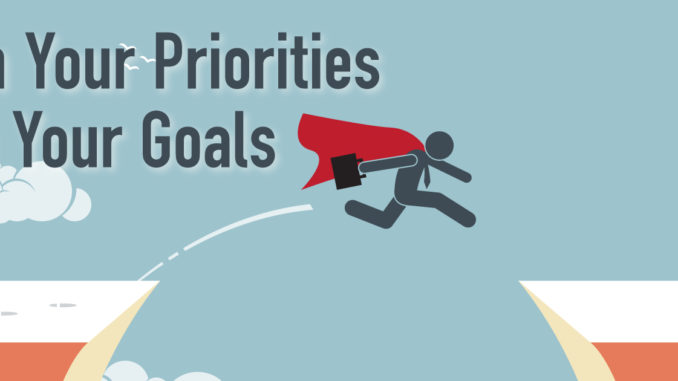
“Even the most competent of leaders can be overwhelmed if they try to tackle multiple problems, or a number of tasks simultaneously. The team will likely fail at each of those tasks. Instead, leaders must determine the highest priority task – and execute.”
– Leif Babin, “Extreme Ownership”
Business owners often wear many hats, especially when starting out. How can you juggle everything on the to-do list while putting out fires and trying to find the time to grow your business? In order to get the most effective use out of your resources, you need to prioritize. Trying to do everything at once will leave you exhausted, confused, and put you farther behind on getting things done. By determining what tasks are truly important, you can focus on the things that will make a long-term impact on your success.
As a business, your goal is to provide the most value to the biggest audience. If you spent all your time and energy on things that made very little impact, you’d go out of business. Ask yourself, “What projects will help us reach our goals most effectively?”
Getting Started: Brain Dump
In order to decide which tasks are the most important, you need to be looking at everything you need to get done. Without a clear list in front of you, you can be focused on an intimidating project that isn’t as important as something that’s slipped your mind. Write it all down, then you can identify what’s going to be the most important for your success.
Identify What’s Important
The projects that are most important mainly fall into two categories: deadline driven or revenue supporting. If you have a specific deadline to file paperwork, submit an ad, or anything else, you need to make sure it gets done by the deadline. Businesses need to make money to succeed, so if a project supports revenue, it’s important and should be prioritized.
Urgent vs. Important
“What is important is seldom urgent and what is urgent is seldom important.”
– Dwight D. Eisenhower
Urgent tasks require immediate action, the “fires” that need to be put out, while important tasks contribute to the long-term mission. The unfortunate truth is we live in a society of instant information, where we’re “always on.” This leads to burnout and keeps us from seeing the benefit of long-term strategy. It’s important to keep the distinction between important and urgent in mind when prioritizing your projects. Sometimes the urgent items need to take precedence over the important ones, but if you can regularly take care of things to keep them from becoming urgent, you’ll be in a better place to work on what’s important.
It’s important to know what things you have to do yourself, and what responsibilities can be handed off for someone else to take care of. A CEO isn’t responsible for taking out the garbage, but if you’re flying solo, everything falls on your shoulders. Consider getting a virtual assistant, someone who does tasks for you remotely, or hiring a student who wants to get into your industry. Whether it’s an official internship or some part-time help, you’ll be able to provide valuable experience as part of the compensation. Once you’ve got someone to help you, figure out what tasks can be handed off to free you up for the bigger priorities.
Keep Ideas on the Back Burner
If you have projects or ideas that fall to the bottom of the priority list, that doesn’t mean they need to be discarded. Keep a running list of these ideas to review every week or two. When you have an opportunity, you can add the best ideas to your to-do list, or eliminate projects that no longer make sense.
